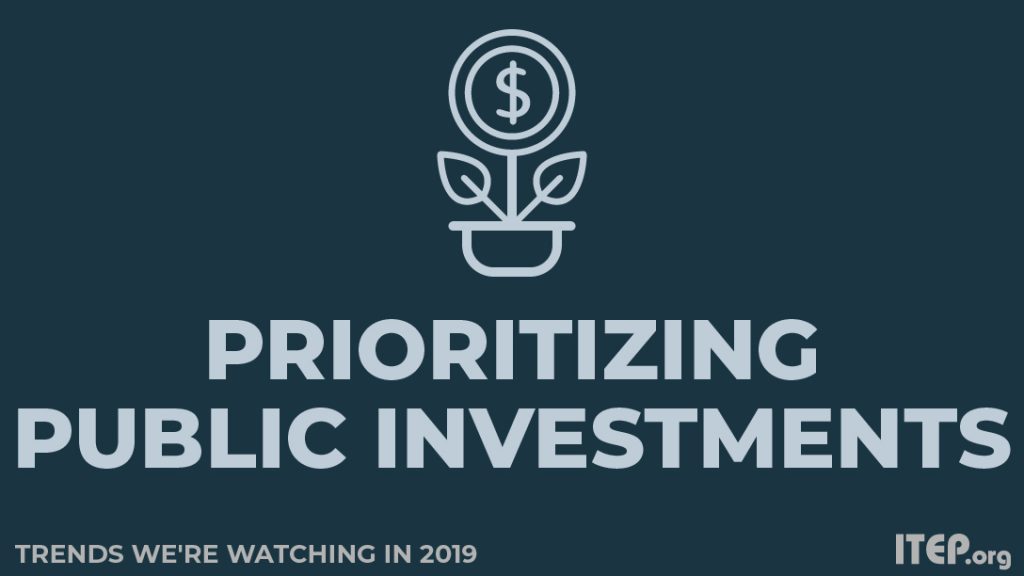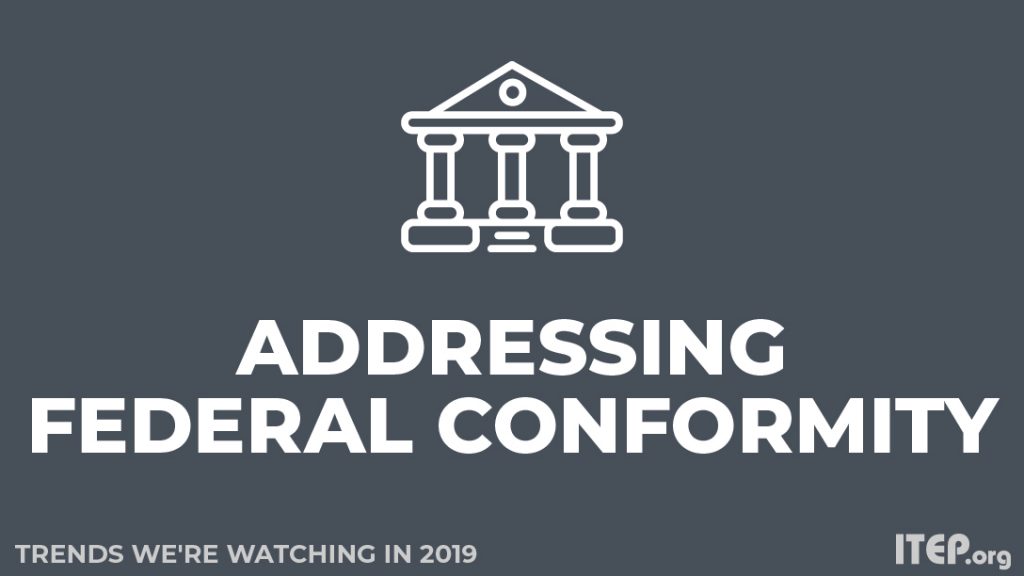This is part two of a seven-part series on state trends we’re watching in 2019.
Continuing to build upon the momentum of previous years, states are taking steps to create and improve targeted tax breaks meant to lift their most in-need state residents up and out of poverty. Most notably, a range of states are exploring ways to restore, enhance or create state Earned Income Tax Credits (EITC). EITCs are an effective tool to help struggling families with low wages make ends meet and provide necessities for their children. The policy, designed to bolster the earnings of low-wage workers and offset some of the taxes they pay, allows struggling families to move toward meaningful economic security. Lawmakers and advocates for equitable tax policy recognize the value of these credits and are taking steps to reflect that in their state tax codes in the following ways:
States take steps to restore recent cuts. Lawmakers and advocates in INDIANA, MICHIGAN and WISCONSIN, for example, are working to restore previous state EITC cuts while taking steps to recouple to the federal credit and expand the credits to caregivers and workers without children in the home, respectively. In OKLAHOMA, policy advocates continue to urge state lawmakers to restore refundability to the state’s EITC, which was made nonrefundable as a misguided revenue-saving measure in 2016.
States move to enhance current credits. CALIFORNIA, specifically, stands out in this category. Gov. Gavin Newsom, has announced a proposal to significantly expand the state’s EITC by expanding income thresholds, boosting the credit for those with children under the age of six, and offering monthly instead of annual payments. In VIRGINIA, in response to federal conformity, Gov. Ralph Northam proposed making the state’s 20 percent nonrefundable EITC refundable while lawmakers are considering a move toward half refundability that would eventually phase up to full refundability over time. In HAWAII, lawmakers have put forth legislation to make the state’s new EITC refundable (PDF), while lawmakers in DELAWARE, on the heels of the governor’s veto last year, are once again pushing for refundability. In NEBRASKA, lawmakers proposed (PDF) doubling the state’s EITC in three steps over time. Advocates also continue to push for improvements across the country—ranging from ARKANSAS, where they push back against high-income tax cuts and call for an EITC as better tax policy; MINNESOTA, where they work to increase the size of the credit for workers without children in the home and for workers with three or more kids; NEW MEXICO, where advocates call for doubling the state’s EITC; to WASHINGTON, where the state’s EITC remains unfunded. Expansion efforts are also underway in MAINE, MISSOURI, MONTANA, NEW YORK, OHIO, OREGON and SOUTH CAROLINA.
States without EITCs create or aiming to create credits. PUERTO RICO, in a broad sweeping tax package, established an EITC-like credit for workers and their families that will range from $300 to $2,000 depending on earnings and number of dependents. Lawmakers and advocates across the country, ranging from GEORGIA to PENNSYLVANIA and UTAH to WEST VIRGINIA, work to join 29 states and the District of Columbia, which currently offer EITCs.
A growing number of states are also exploring ways in which they can create, expand and improve Child Tax Credits and Child and Dependent Care Credits. Child Tax Credits are under discussion in COLORADO, IDAHO, NEW MEXICO, NEW YORK and PENNSYLVANIA, while Child and Dependent Care Credits are being discussed in INDIANA, MINNESOTA and NEW JERSEY.
Trends We’re Watching in 2019:
- Using Targeted Tax Breaks to Help Address Poverty and Inequality
- Raising Revenue and Spending Surpluses to Prioritize Critical Public Investments
- Addressing Lingering Federal Conformity Questions and Opportunities
- Attempting to Double Down on Failed Trickle-Down Regressive Tax Cuts
- Reforming and Implementing Cannabis Laws
- Consumption Taxes: the Good, Bad and the Ugly





